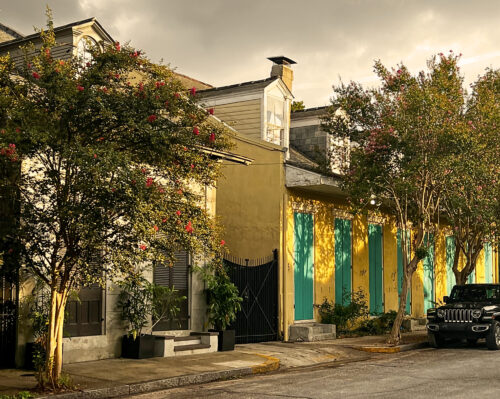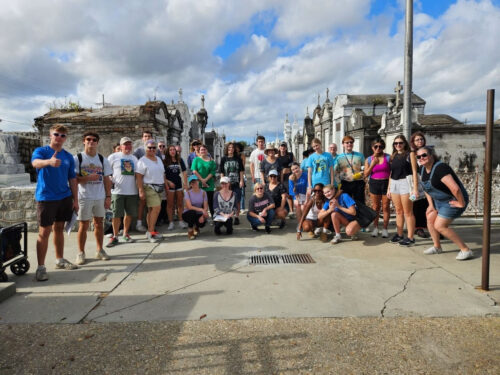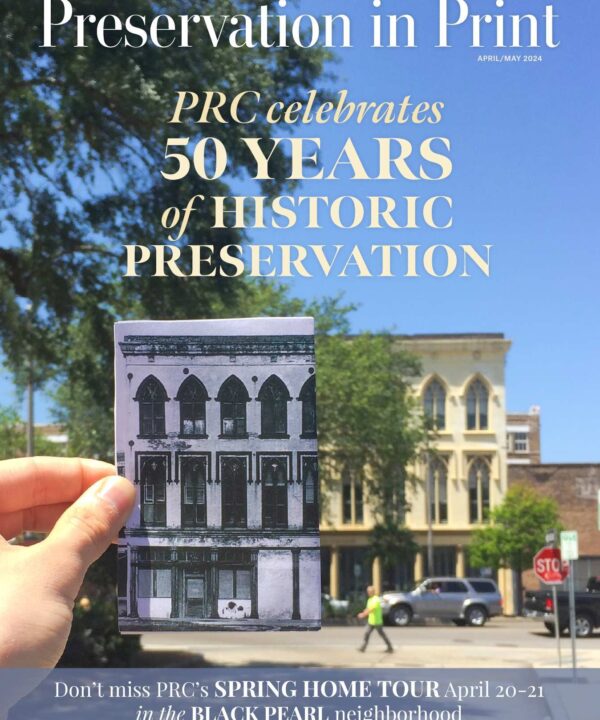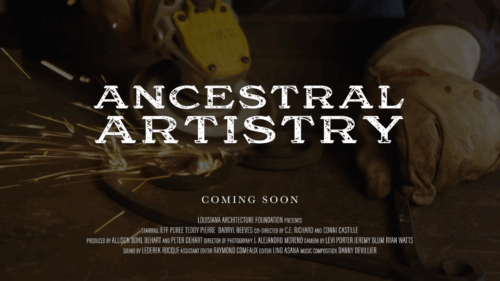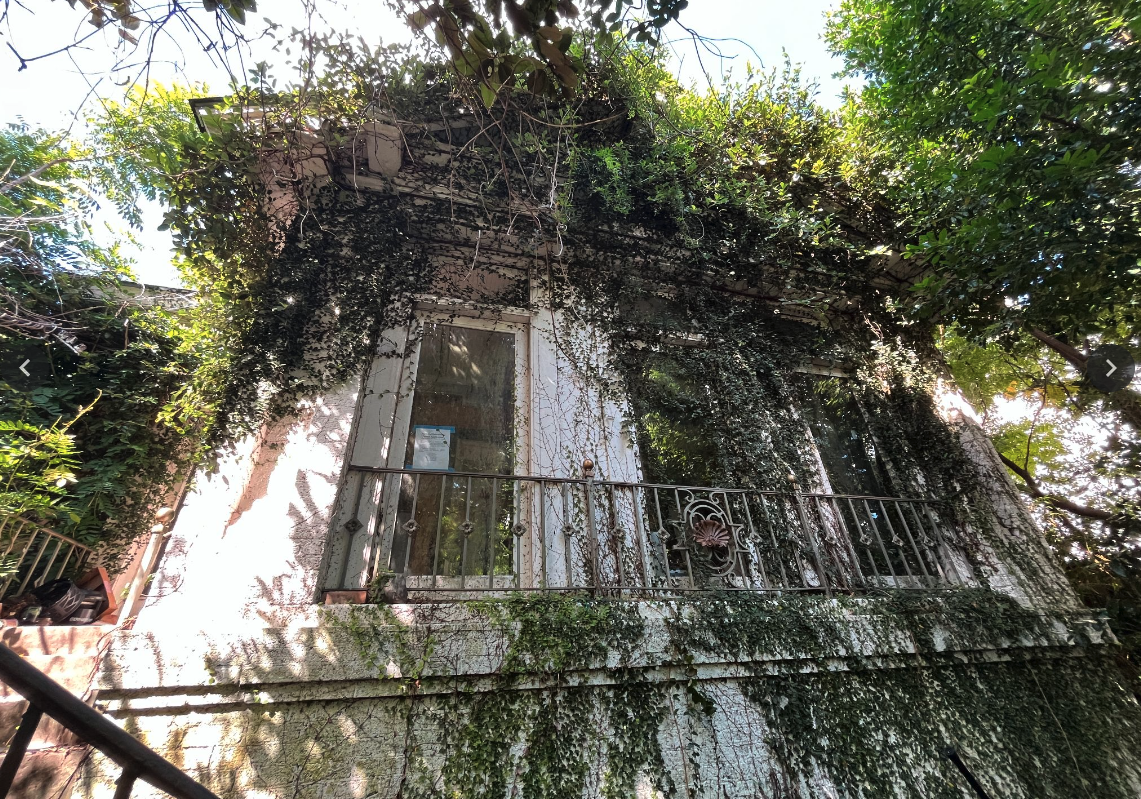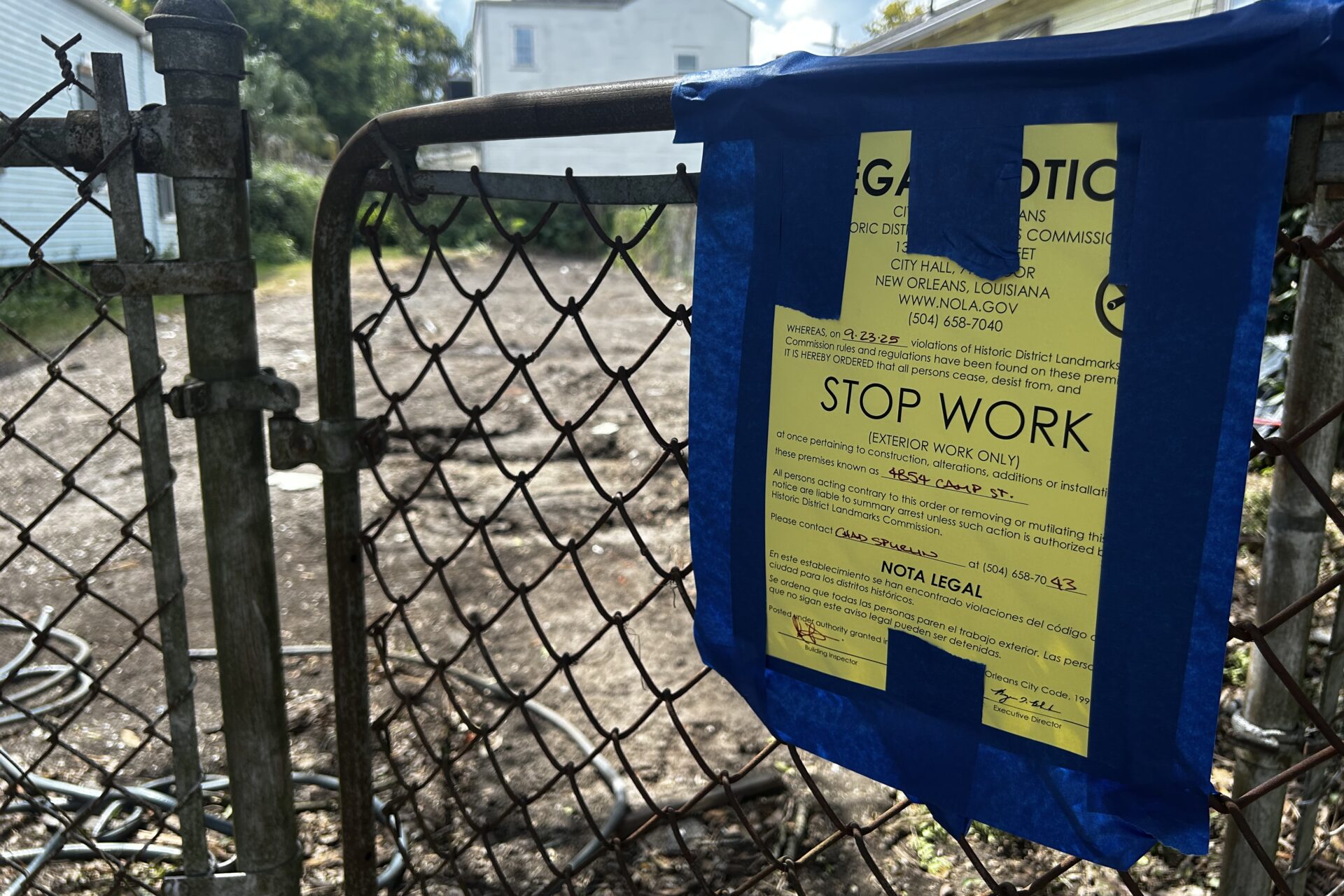Overview
District A • District B • District C • District D • District E • At-Large
Jay H. Banks – D (incumbent)
As a former King Zulu (2016) and a resident of a historic shotgun home, I am deeply invested in the preservation of our culture and history. I am proud to have been at the forefront of updates to the HDLC demolition definition that closed loopholes to protect irreplaceable homes in National Register Historic Districts. I also introduced the ordinance to fund the Tourism and Cultural Economy Program budget which provides services and financial support to the culture-bearers and cultural economy of New Orleans, including the people, enterprises, and communities that transform cultural skills, knowledge, and ideas into economically productive goods, services, and places. I will continue to focus on improvements that benefit the cultural fabric of our unique heritage.
Lesli Harris – D
New Orleans is a one-of-a-kind architectural and cultural gem in the United States and the World. Our culture and history is the driver of our economy — visitors literally opt to make their homes here after one visit because the city resonates with them. We can preserve New Orleans’ unique culture if we listen to our culture-bearers and organizations like the PRC who are dedicated to protecting our historic architecture and neighborhoods. As Councilmember, I will listen to the people on the ground who are doing the work every day. I will be a partner and advocate for policies we need, like affordable housing measures, infrastructure repairs, and zoning laws.
Rella Zapletal – D
I will continue to advocate for cultural and historic preservation. As neighborhood association president, I worked with the PRC to create the Touro Bouligny Cultural District. This cultural district will bring blighted properties back into commerce and hopefully ensure our historic, community school building is saved. I have fought to prevent historic homes from being demolished and have also advocated for developers to be fined the maximum amount when historical homes are “accidentally” demolished. I will bring this experience and viewpoint to City Council as a voice for those working hard to preserve cultural landmarks and properties.
I will also support economic incentives for those who do the work of keeping our unique city unique by improving, purchasing, or building historic properties and spaces. I believe that those who invest in this worthy cause need support for their work because it is so vital to the cultural economy of New Orleans. I want to bring a focus to improving equity among those who receive economic investments so that every citizen, regardless of neighborhood, has the tools they need to preserve culturally significant properties.
Jay H. Banks – D
We must secure the ability for working families to live and thrive in New Orleans. That is why I’ve led the charge on affordable housing policies and issues that affect the daily lives of our neighbors. There are numerous factors that have pushed generations of families from their homes, including STRs and lack of access to jobs and transportation. Significant increases in property taxes have often been the nail in the coffin for many longtime homeowners. I will continue to advocate on property tax rate issues with our state legislators. I will work with the administration to increase enforcement for non-compliant and illegal STRs. I will continue to be a champion for progressive housing policy and economic development. Going forward, I will continue to champion policies that put vacant infrastructure back into commerce, concentrating on sustainable economic development in our historic neighborhoods.
Lesli Harris – D
I bought my first home on Amelia Street from the PRC in 2004. The home had been abandoned and used for drug trafficking. My neighbors were happy to see the blighted home become part of a revitalization of the neighborhood. But, after Hurricane Katrina, we saw those same neighbors sell property at rock bottom prices because they couldn’t afford to come back to the city. One of my top priorities in my first term as Councilmember will be finding funds for low- and moderate-income homeowners to make necessary home repairs so we can prevent blight before it starts. I will also seek more funding for our first-time homeowners’ programs, soft second programs, and homeowner education programs. I will work with local, federal, and state partners to use city-owned properties for affordable housing. And we must cap property tax assessments so that long-time residents are not impacted by outsized development around them.
Rella Zapletal – D
I will expand use of the existing city housing programs and tax relief, to help more low and middle income families purchase and stay in their homes. I will support smart zoning policies that incentivize ethical developers to expand housing access by eliminating blighted properties through redevelopment that incorporates practical zoning policies to expand access to housing for those who need it most.
I also support the concept of a new tax on blighted properties, which has a proven record of increasing sale of blighted property, remediation, and even demolition by the owner when it is appropriate. I would also encourage the administration to restore the blightstatus tracking tool, so that residents can track and follow up on blighted properties in their neighborhoods.
Expanding existing programs that reduce blight is a must. When justified, I will support the creation of more cultural districts, the effect of which is to reduce blighted properties within the district by letting the market do its own work.
Jay H. Banks – D
We do need a new City Hall, but the Municipal Auditorium is not the place for it. I believe the best place for City Hall is somewhere in New Orleans East. Moving not just City Hall but also the Sewerage & Water Board, Police Headquarters, the Courts and other municipal related entities to the East would create an economic driver in an area of our city that needs it. The properties downtown could be sold or leased, and I believe deliver a much better value for our citizens.
Lesli Harris – D
Moving the seat of municipal government is a major decision, with lasting consequences. Any consideration of a new City Hall must include the voices of all stakeholders and also be transparent. That said, the current location supports surrounding businesses — large and small — and residences. Moving City Hall to another location would cause a major disruption in the City and District B, in particular. That’s why I am in favor of keeping City Hall in its current location and rebuilding it so that it is safe and more efficient for city workers and citizens alike. I also support well-placed government annexes throughout the City so that people can access City services.
Rella Zapletal – D
I interned at city hall in law school, so I am intimately aware of the horrible conditions city employees are forced to work in daily. The reality is that the current City Hall is in dire need of a complete overhaul, but that is a costly undertaking. I believe we should begin the process by obtaining as much public input as possible, but what should be at the forefront of any decision is ensuring that city services are accessible for all citizens. Currently, an RTA transfer stop is directly in front of city hall, providing access for all. The new location must maintain good public access for people from all walks of life and all areas of the city. This won’t be an easy solution to create, which is why I am focused on bringing people with different opinions and expertise together to give New Orleans the City Hall it deserves.
Jay H. Banks – D
Our historic infrastructure is irreplaceable. When a home is demolished, whether under HDLC or demolition review, we cannot get it back. I will continue to scrutinize appeals, as the HDLC imparts expertise and consistently adheres to their own design guidelines. My office works to find compromises that provide flexibility when mitigating factors arise, but we coordinate with HDLC to make sure no inappropriate precedents are set.
Lesli Harris – D
As Councilmember, my primary concern in an HDLC appeal would be the proposed project’s compliance with the CZO and HDLC regulations, community input, impact on the community, and business actualities. The city and stakeholders spent several years drafting the city’s master plan and CZO and we need to follow the law and processes that have been put in place. The current decision-making process in District B seems to be arbitrary and not informed by the realities of the neighborhood. As Councilmember, I will be consistent, transparent, and objective in my decisionmaking on HDLC appeals.
Rella Zapletal – D
I believe that there are experts on the HDLC who bring needed experiences with these issues. While I would be inclined to weigh their decisions heavily into my own, I would take the initiative to investigate appeals and collect information that may not be part of the factors considered by HDLC before voting to uphold their decision. I believe it is my duty to personally reach out to applicants, talk with others in the neighborhood and consider all appeals carefully.
Matters before HDLC require an affirmative vote of 8 members, and it’s important that the bar is high. While regulations prohibit ex parte communications between members of HDLC and applicants, not every applicant has the same ability to present a qualified application to the board. The complex regulations that are required for approval, even if met, can sometimes not be fully communicated in an application.
When it comes to enforcing violations of regulations, and the Council’s role, I will take the job very seriously. If we lose what is special about New Orleans, we can never get it back.
Jay H. Banks – D
District B has seen disproportionate effects from “overtourism.” Our most valuable real estate close to jobs and attractions has become inaccessible to most regular New Orleanians, who haven’t benefitted from the tourism economy. Property costs in our attractive, historic neighborhoods have skyrocketed with the demand for short-term rentals and excessive commercialization, pushing the residents that create the cultural draw out of the places their families have lived for generations. The short-term rental changes that the City Council passed were a major improvement, but an ordinance is only as good as its enforcement. I’ve worked to increase funding for more enforcement through Safety and Permits. I will continue to trailblaze creative paths towards affordable homeownership. I will encourage neighborhood commercial establishments that employ and serve neighbors. I am a strong believer in an idea that Roberta Gratz put well, “If you build it for the residents, the tourists will come. If you build it for the tourists, the residents will leave, and eventually, the tourists will stop coming.
Lesli Harris – D
As Councilmember, I will work with the Mayor on enforcement of our short-term rental laws by staffing-up, going door-to-door with registered STRs to ensure compliance, and establishing a monitored, community reporting system for illegal STRs (with actual follow up). I will do what it takes to make sure we are enforcing penalties and collecting taxes. I will also listen to constituents on whether the current laws are working for them in their particular community. Our STR regulations are new and we should review them to make sure they are appropriate and effective given the realities of the City.
I also want to support the culture bearers who are presenting an honest and respectful truth of New Orleans’ past and present. The Whitney Plantation is a good example of showing the realities of slavery, without sugarcoating it. I will support those who are educating tourists on the incredible civil rights activism originating in New Orleans — from Homer Plessy to Ruby Bridges to Rudy Lombard. I will advocate for funding and resources so we as a city can preserve this history. I will also listen to and support current activists, including artists like Lionel Milton and Brandan “B-Mike” Odums.
Rella Zapletal – D
First, I will look for ways to integrate more data into our examination of what makes for “good tourism.” Relying merely on hotel/motel data, although that is an important source of funding for tourism, doesn’t give us a true picture of what we can and should do to promote tourism.
Moreover, too many neighborhoods with a lot to offer are being left behind. My record as president of my neighborhood association shows that I will advocate for locally owned businesses, and truly fight to protect them from the inequities of big chain impacts in our neighborhood. I’ll bring that same approach to ensuring that every neighborhood is marketed for tourism in a way that fits with its needs. This will help to spread out traffic from tourists and ensure that local, small businesses see the economic gains of our cultural economy, no matter where they are located in our city.
No response: Rosalind “Roz” Reed-Thibodeaux – I

